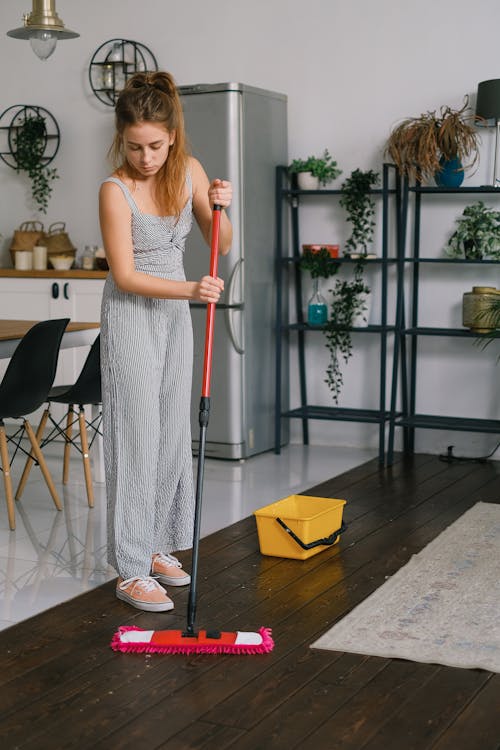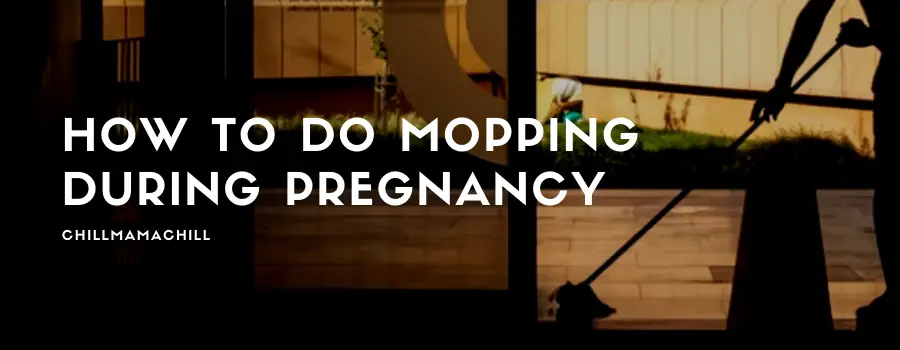Are you pregnant? It’s one of the most beautiful things to happen to any woman. The thought of creating and carrying a new life makes you forget all the morning sickness and other difficulties. But while you’d love to rest and wait for that miracle moment of birth, there are new approaches to take for household chores. One such is how to do mopping during pregnancy.
While it’s not strenuous, mopping your house may require bending or wringing out your mop, which can cause pain. Avoid over-extending your joints, ligaments, or straining muscles that pregnancy hormones and extra weight have weakened. A small amount of water in the bucket will eliminate weight, which you should never lift when pregnant.
When done with precaution and care during pregnancy, mopping is a low-impact exercise that ensures you get a healthy baby. Such movement will help the fetus shift to a comfortable position. Your hips and pelvis get widened, reducing the risk of delivery complications. To learn how you can safely approach your mop and bucket for effective house cleaning, keep reading.
Is It Safe to Mop the House during Pregnancy?
When you’re pregnant, your natural maternal instincts tell you to do everything possible to protect the health of your unborn baby. You’ll exercise, eat well, avoid caffeine or alcohol and take plenty of rest. Lifting heavy loads, in particular, can potentially cause spotting, premature amniotic sac rupture, and preterm labor. With such incorrect movements, you’re also risking low birth weight as well as various congenital defects.

Household chores can prove challenging when you’re pregnant. Thanks to the constant exhaustion and morning sickness that accompanies the first trimester of your pregnancy. That housework you were used to will result in uncomfortable back pain, muscle strain, and other risky injuries. Remember that your weight has increased due to that acorn you have in the oven, and as such, you’ll lack stamina, balance, and stability.
Whenever you have to clean floors, start slowly and listen to your body. Feel whether it’s okay to bend while mopping and stop to rest if you feel pain or any unusual symptoms during the activity. These include pain, strain, lightheadedness, sudden vision loss, or nausea. Talk to your obstetrician before continuing with the household chore so that your pregnancy is gauged for miscarriage risk.
Mopping during pregnancy is safe if you’re not carrying a heavy water bucket. Your mop handle should be long enough to eliminate prolonged bending. Avoid twisting, turning, or dragging, especially as you wring water from the mop head resulting in jerky or jarring movements. It is okay to reduce the load to your spinal cord by doing it gradually, room by room, resting often.
What Pregnancy Protective Movements and Positions Can I Use When Mopping?
Strenuous physical demand, such as prolonged standing, bending, or heavy lifting, places your pregnancy at a risk of miscarriage. You can injure your back, pelvis muscles, or sciatica, a nerve that runs down your buttocks to the upper parts of your legs. Among other complications like low birth weight and congenital disorders, over-exerting at household chores can result in preterm birth.
Mopping floors with a mop and bucket is fine as long as there’s no lifting or bending. Keep watch over the cleaning solution you use during pregnancy. Some products contain harsh chemicals that can harm your fetus after direct contact or inhalation. Go for natural cleaners like lemon, vinegar, or baking powder to remove dirt without putting your unborn baby at risk.
According to the American Pregnancy Association, moderate physical exercise such as mopping in the safety of your house is recommended. There’s minimal risk in such household chores if there aren’t exceptional circumstances such as a history of miscarriage. The first trimester requires that you undertake such low-intensity workouts within temperature-controlled environments to keep active.
It’s during the second or third trimester when you may experience spinal or abdominal pressure. That results from bending, squatting, or lifting a heavy bucket of mopping water. Mopping for too long will also affect the fetus, and you shouldn’t continue if you feel the slightest bit of discomfort.
How Do I Mop Safely During Pregnancy?
After the fifth month of pregnancy, mopping the floor while bending or lifting the bucket will cause back pain, amongst other complications. Pressure is added onto your spine due to the weight of your fetus. That can lead to hypoxia for your unborn baby. Your body isn’t as flexible as before and slowly does it with the growth of your belly.
When the time comes for you to quit, hand over the mopping duties to your husband or hire a cleaner. Delegating household duties will be preferable to putting your pregnancy at risk, which can complicate the birth. You can also choose a mop that won’t require much bending or stooping while making sure the space being cleaned is well ventilated.
Some mops don’t need a bucket of water, as their microfiber pads are ready to mop after wetting under a tap. Others have handles that adjust to help with reaching under furniture without standing, bending, or leaning awkwardly. Ensure that your mopping time doesn’t exceed 10 or 15 minutes, resting as much as possible before continuing.
For How Long Can I Continue Mopping During Pregnancy?
You can continue mopping until your 32nd or 34th week, by which time your physique won’t handle mild activities. Nesting instincts are common for mothers-to-be at the late pregnancy stages, where you’ll want to shift furniture or do a deep clean in preparation for your baby’s birth. No lifting should happen from the first trimester to the last, but instead, ask someone to help if necessary.
The same goes for prolonged standing, which can disrupt blood flow, add stress to your base, increase the risk of hypertension and cause swollen feet. During this time, rest as much as possible instead of busying yourself with housework like mopping. Your mental space must be clear as you prepare for the coming labor and birth.
Conclusion
To do mopping during pregnancy, you’ll avoid carrying a heavy mop bucket and standing for too long. There should be minimized bending, climbing stairs, or leaning too much on the mop handle. Protect yourself and your unborn baby from harsh cleaning chemicals by going green or wearing protection for your hands and face.

I’m Cathrine and I’m a 39-year-old mother of 3 from Utica, New York. And I’m extremely happy you’ve come to visit my hide-out on the web. Here I post about everything related to family-life and usually it will involve babies and lessons I’ve learned over the years from experts, friends, and my own mistakes. So hopefully you will find what i write fun and informational!

